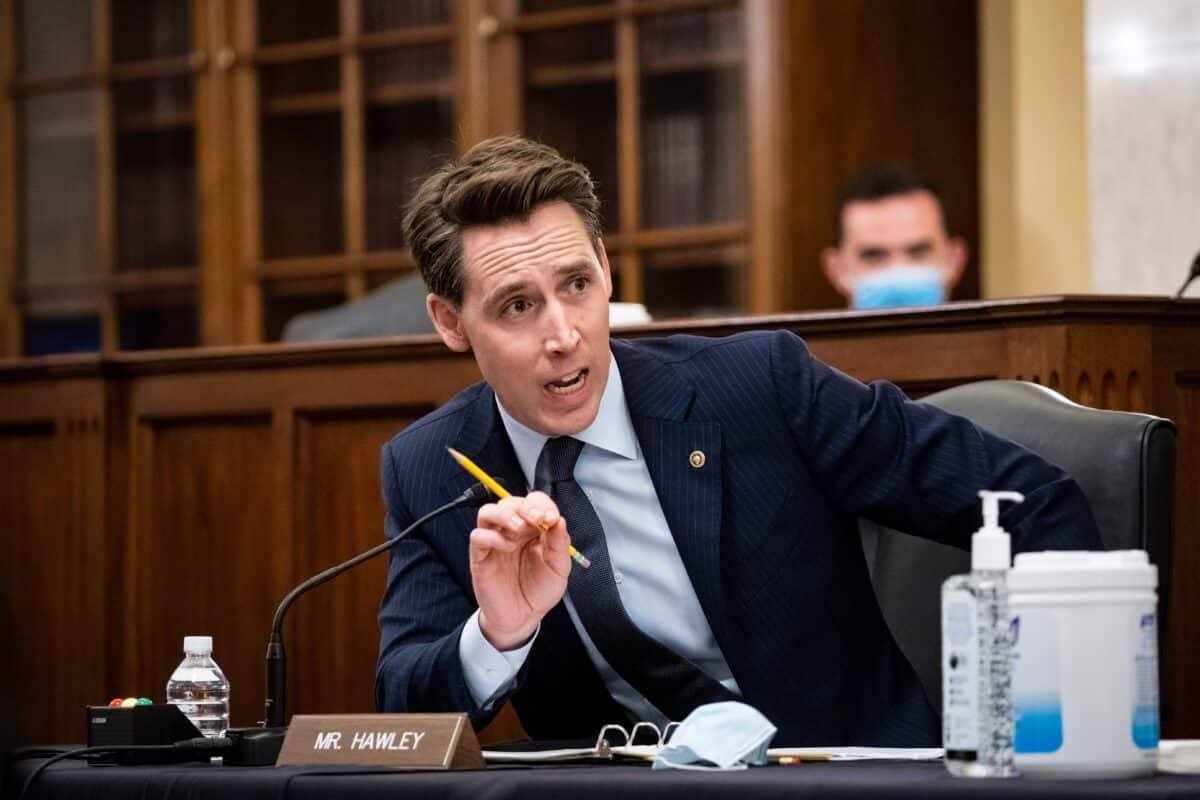A group of Republicans continues to support President Donald Trump’s ongoing legal challenges in response to widespread allegations of voter fraud, saying that though electors cast their votes on Dec. 14, it’s not over until Congress counts the electoral votes on Jan. 6.
Florida Gov. Ron DeSantis declined a reporter’s request to acknowledge Biden as “president-elect.” Sen. Josh Hawley (R-Mo.) said the election won’t be over until Jan. 6, the day that lawmakers can challenge slates of electors. Sen. Kelly Loeffler (R-Ga.) wouldn’t rule out lodging such a challenge.
“I think this process will end on January [6], which is when Congress has to certify the results of the Electoral College,” Hawley told CBS.
“Obviously, the Electoral College is very significant. Their vote [was] very significant earlier, but the certification happens on January [6], and until then, I think President Trump certainly has every right to pursue the legal remedies he wants to pursue and to be heard.”
On Jan. 6, the newly seated House and Senate are scheduled to hold a joint session to count the electoral votes. The electors for each state can be challenged with a motion from one member of the House and one senator. Rep. Mo Brooks (R-Ala.) is planning to lodge such a challenge but appears to not yet have found a Republican senator willing to work with him.
Two newly elected members of the House—Rep.-elect Barry Moore (R-Ala.) and Rep.-elect Marjorie Taylor Greene (R-Ga.)—said they would back Brooks in challenging the electors.
Hawley didn’t respond to an email asking whether he plans to challenge any of the electors. Brooks didn’t respond to an email asking whether he’d found a senator to join his challenge.
Republican electors in seven states, all of which awarded their electoral votes to Biden, cast procedural votes for Trump on Dec. 14, setting up a “dueling electors” scenario not seen since the 1960 presidential election. The seven states—Pennsylvania, Georgia, Michigan, Wisconsin, Arizona, Nevada, and New Mexico—certified the Biden electors. The president and third party allies are pursuing legal challenges in six of the seven states.
“It’s not for me to do,” DeSantis said when prompted to acknowledge Biden as the president-elect. “Obviously, we did our thing in Florida. The College voted. What’s going to happen is going to happen.
“But I can tell you, I think a lot of the frustration for folks that supported the president was [that we spent] four years with people not accepting him.
“The last week of the election, [Hillary Clinton] was saying [Vladimir] Putin stole it, and I just think that that’s left a lot of people really frustrated with how it’s going to go.”
Loeffler wouldn’t rule out challenging electors on Jan. 6. The Georgia senator is facing a run-off election days prior to the counting of the electoral votes.
“I haven’t looked at it,” Loeffler told reporters in Georgia. “January 6 is a long way out, and there’s a lot to play out between now and then.”
Sen. Rand Paul (R-Ky.) said on Dec. 10 that he wouldn’t rule out challenging the electors. His office didn’t respond when asked whether the senator had made up his mind.
Senate Majority Leader Mitch McConnell (R-Ky.) on Dec. 15 for the first time acknowledged Biden as the winner and cautioned fellow Republicans against challenging electors on Jan. 6.
In response, Trump wrote on Twitter on Dec. 16: “Mitch, 75,000,000 VOTES, a record for a sitting President (by a lot). Too soon to give up. Republican Party must finally learn to fight. People are angry!”
Despite the concession from the Senate leader, top House Republican Reps. Kevin McCarthy (R-Calif.) and Steve Scalise (R-La.) haven’t acknowledged Biden. McCarthy and Scalise were part of a group of 126 House lawmakers who filed a brief in support of Texas in an interstate election lawsuit that was subsequently declined by the Supreme Court. There were no similar briefs from any Republican senators.
The Epoch Times reached out to every Republican senator and senator-elect on Dec. 16 to ask whether they planned to challenge electoral votes on Jan. 6. The handful of those who responded didn’t confirm whether they were planning to challenge.
Spokespeople for Sen. John Cornyn (R-Texas) and Sen. Lindsey Graham (R-S.C.) pointed The Epoch Times to remarks in which the senators acknowledged Biden as the winner, conditioned on the outcome of Trump’s legal challenges.
“I would say that subject to any other litigation that could occur between now and Jan. 20, the answer is yes,” Cornyn said when asked whether Biden was now president-elect.
Cornyn added that challenging the electoral vote on Jan. 6 “would be a bad mistake.”
After the Electoral College voted, Graham told reporters that he had already spoken to Biden, but that Trump’s legal challenges should be allowed to play out. “It’s a very, very narrow path for the president. I don’t see how it gets there from here, given what the Supreme Court did,” Graham said. “But having said that, I think we’ll let those legal challenges play out.”






